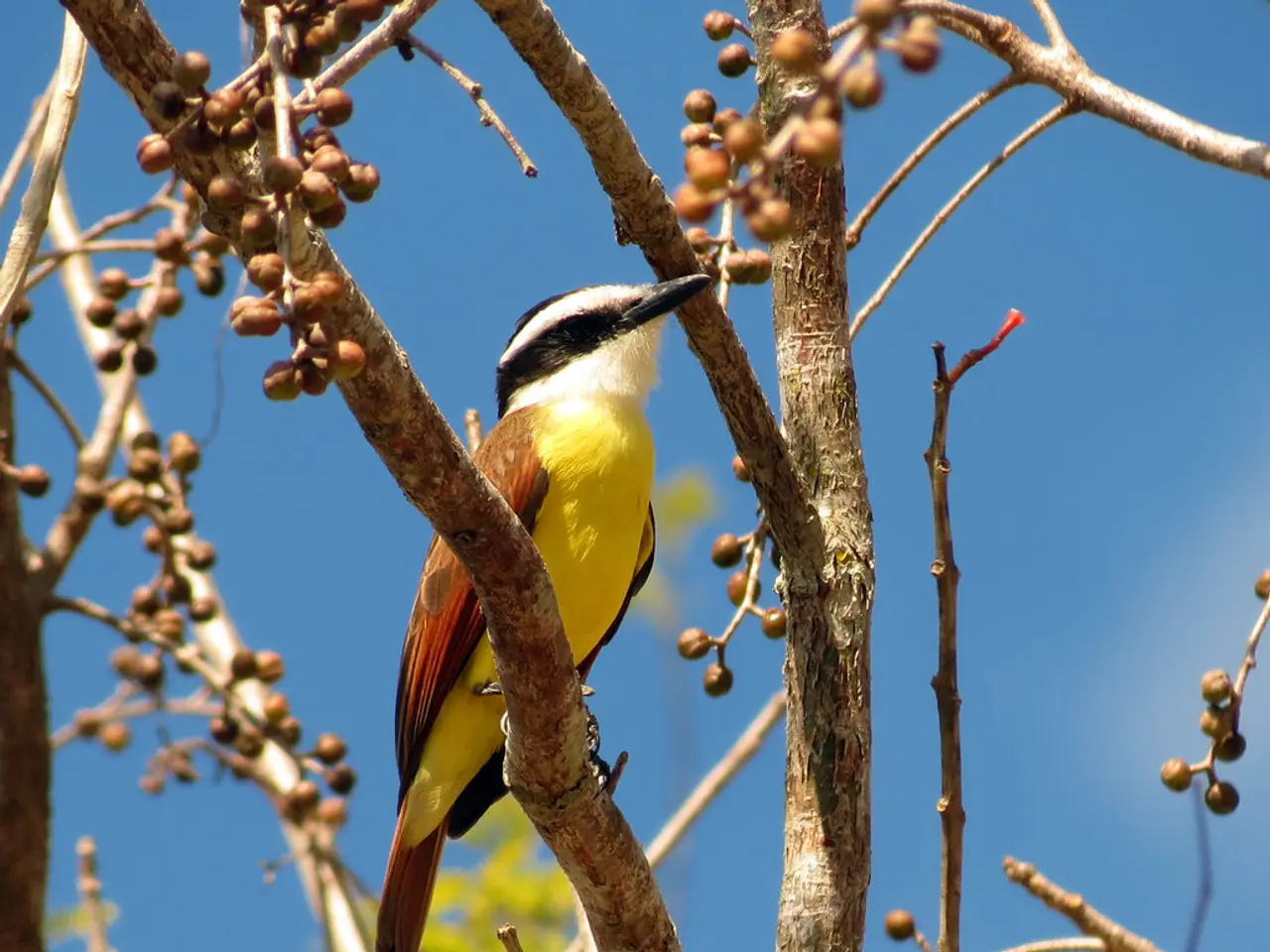Wild birds' dietary dos and don'ts unveiled by a veterinarian, with some surprising restrictions!
For many of us, bird-watching from home has become a beloved pastime, especially during the colder months when food supplies are scarce. However, it's essential to remember that not all human foods are safe for our feathered friends. Here's a list of eight foods to avoid feeding wild birds and some suitable alternatives.
1. **Bread** Bread offers little nutritional value and can lead to an unbalanced diet, potentially causing harm, especially to young birds like ducklings. Feeding bread to waterfowl can also lead to a condition called *angel wing*, where wing feathers grow incorrectly, preventing flight.
2. **Avocado** Avocado contains a toxin called persin, which is harmful to many bird species, potentially causing respiratory or heart issues.
3. **Onion** Onions are toxic to birds and can cause digestive upset and anemia due to compounds that damage red blood cells.
4. **Caffeine** Caffeine is a stimulant toxic to birds, potentially causing heart problems and hyperactivity.
5. **Chocolate** Chocolate contains theobromine and caffeine, both poisonous to birds, and can be fatal even in small amounts.
6. **Salty snacks (e.g., chips, salted nuts)** Birds cannot process salt efficiently, and salty foods can lead to dehydration and kidney damage.
7. **Milk and dairy products** Birds cannot digest lactose, so dairy can cause severe digestive problems and discomfort.
8. **Raw rice** While not directly toxic, raw rice can expand in birds' stomachs, causing discomfort and digestive issues.
Avoid cheap fillers or moldy grains in store-bought mixes as these can cause respiratory illness or provide poor nutrition. Also, be cautious with foods like suet or peanut butter during hot weather, as they can go rancid and make birds sick.
For healthy feeding, provide high-protein and nutrient-rich foods such as mealworms, sunflower seeds, peanuts (unsalted), fresh fruit, and seasonal treats suitable for wild birds. It's important to keep rodent intruders at bay by using a squirrel-proof bird feeder, bird feeder pole, or placing feeders away from walls or trees.
Attracting specific birds into your yard can be done by offering foods they enjoy (e.g., mealworms for robins). However, it's crucial to remember that processed foods like potato chips, crackers, donuts, french fries, and cookies are unhealthy for wild birds.
One product that is safe and beneficial for birds during the breeding and nesting season is Pacific Bird & Supply Co.'s Smorgasbug Suet Balls, which are high in energy and protein and free from artificial colors, flavors, and preservatives.
By following these guidelines, you can ensure that your wild bird friends stay healthy and happy while providing enjoyable bird-watching experiences from the comfort of your home.
- Pet dogs need a balanced diet that caters to their breed's specific nutritional requirements to maintain good health.
- A puppy's behavior can be influenced by the lifestyle it leads at home, and it's crucial to provide care and socialization to help it grow into a well-behaved pet.
- Homes with pets, such as dogs or cats, should be pet-proofed to ensure the safety of the animals and prevent accidents.
- Good nutrition for cats involves a diet rich in proteins, with food-and-drink options available that are specifically formulated for their unique dietary needs.
- Toys are important for pets like dogs, as they help keep them mentally stimulated and prevent boredom, which can lead to destructive behaviors.
- When shopping for pet supplies, it's essential to choose high-quality toys made from safe materials to ensure your pet's health and safety.
- It's not only birds that require careful consideration when it comes to their diet—even domesticated pets like cats and dogs can suffer health problems if given the wrong foods or inadequate care.



